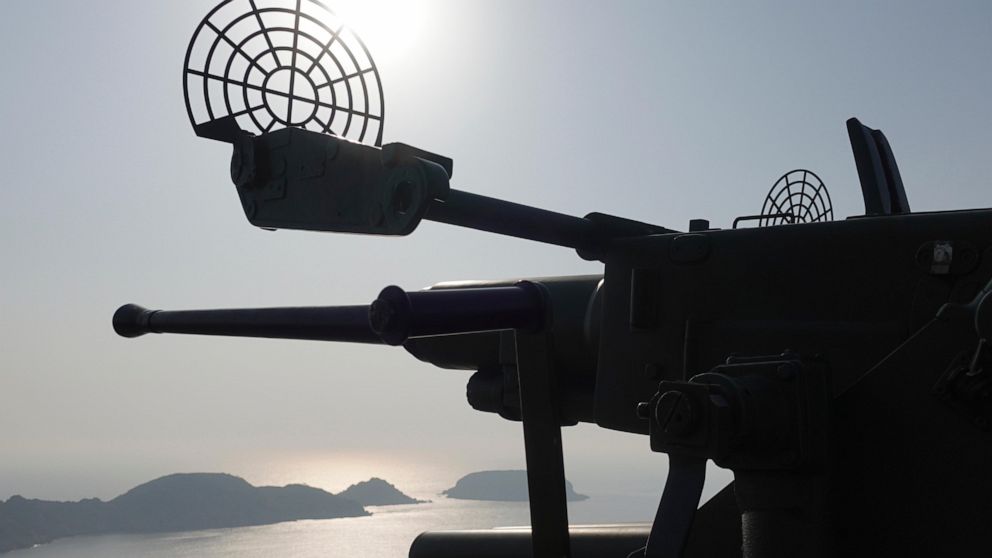In the past month, bed and breakfast owner Chen Yu-lin had to tell his guests he couldn’t provide them with the internet. Others living on Matsu, one of Taiwan’s outlying islands closer to neighbouring China, had to struggle with paying electricity bills, making a doctor’s appointment or receiving a package.
For connecting to the outside world, Matsu’s 14,000 residents rely on two submarine internet cables leading to Taiwan’s main island. The National Communications Commission, citing the island’s telecom service, blamed two Chinese ships for cutting the cables. It said a Chinese fishing vessel is suspected of severing the first cable some 50 km out at sea.
Taiwan’s government stopped short of calling it a deliberate act on the part of Beijing, and there was no direct evidence to show the Chinese ships were responsible. The islanders in the meantime were forced to hook up to a limited internet via microwave radio transmission, a more mature technology, as backup. It means one could wait hours to send a text. Calls would drop, and videos were unwatchable.
“A lot of tourists would cancel their booking because there’s no internet. Nowadays, the internet plays a very large role in people’s lives,” said Chen, who lives in Beigan, one of Matsu’s main residential islands.
Apart from disrupting lives, the loss of internet cables, seemingly innocuous, has huge implications for national security. As the full-scale invasion of Ukraine has shown, Russia has made taking out internet infrastructure one of the key parts of its strategy. Some experts suspect China may have cut the cables deliberately as part of its harassment of the self-ruled island it considers part of its territory, to be reunited by force if necessary.
China regularly sends warplanes and navy ships toward Taiwan as part of tactics to intimidate the island’s democratic government. Concerns about China’s invasion, and Taiwan’s preparedness to withstand it, have increased since the war in Ukraine.
The cables had been cut a total of 27 times in the past five years, but it was unclear which country the vessels hailed from, based on data from Chunghwa Telecom. Taiwan’s coast guard gave chase to the fishing vessel that cut the first cable on Feb. 2, but it went back to Chinese waters, according to an official who was briefed on the incident and was not authorised to discuss the matter publicly. Authorities found two Chinese ships in the area where the cables were cut, based on automated identification system data, similar to GPS, which shows a vessel’s location.
“We can’t rule out that China destroyed these on purpose,” said Su Tzu-yun, a defense expert at the government think tank, Institute for National Defense and Security Research, citing a research that only China and Russia had the technical capabilities to do this. “Taiwan needs to invest more resources in repairing and protecting the cables.”
Internet cables, which can be anywhere between 20 mm to 30 mm wide, are encased in steel armour in shallow waters where they’re more likely to run into ships. Despite the protection, cables can get cut quite easily by ships and their anchors, or fishing boats using steel nets. Even so, “this level of breakage is highly unusual for a cable, even in the shallow waters of the Taiwan Strait,” said Geoff Huston, chief scientist at Asia Pacific Network Information Centre, a non-profit that manages and distributes Internet resources like IP addresses for the region.
Without a stable internet, coffee shop owner Chiu Sih-chi said seeing the doctor for his toddler son’s cold became a hassle because first they had to visit the hospital to just get an appointment. A breakfast shop owner said she lost thousands of dollars in the past few weeks because she usually takes online orders. Customers would come to her stall expecting the food to be ready when she hadn’t even seen their messages.
Faced with unusual difficulties, Matsu residents came up with all sorts of ways to organise their lives. One couple planned to deal with the coming peak season by having one person stay in Taiwan to access their reservation system and passing the information on to the other via text messages. Wife Lin Hsian-wen extended her vacation in Taiwan during the off-season when she heard the internet back home wasn’t working and is returning to Matsu later in the week.
Some enterprising residents went across to the other shore to buy SIM cards from Chinese telecoms, though those only work well in the spots closer to the Chinese coast, which is only 10 km away at its closest point. Others, like the bed and breakfast owner Tsao Li-yu, would go to Chunghwa Telecom’s office to use a Wi-Fi hot spot the company had set up for locals to use in the meantime. “I was going to work at (Chunghwa Telecom),” Tsao joked.

